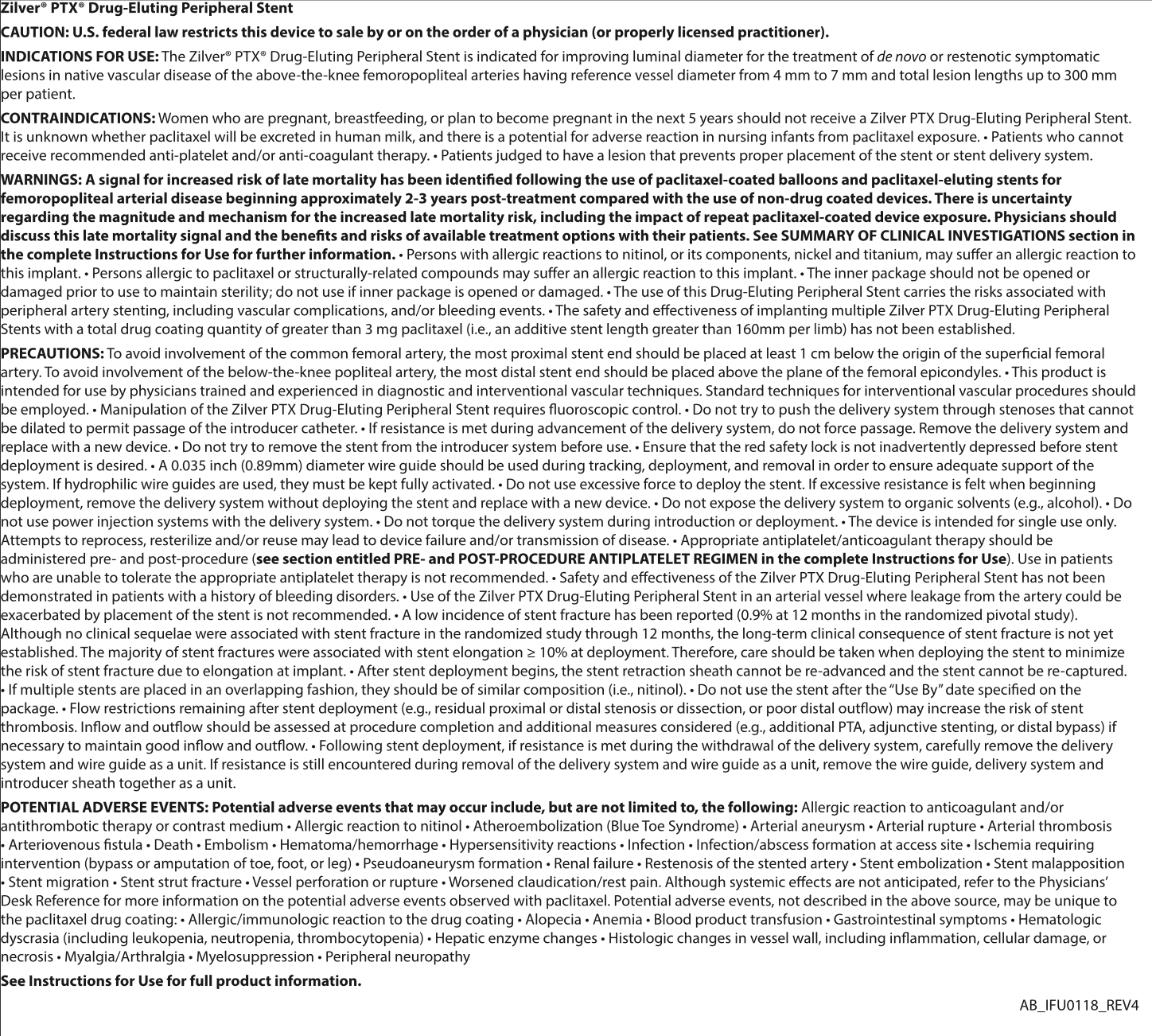Bloomington, Ind. — A study published in the Journal of Vascular and Interventional Radiology compared healthy porcine vessels treated with either a permanent polymer-coated drug-eluting stent (DES) or with Cook Medical’s polymer-free Zilver PTX DES.1
The study was performed by the non-clinical testing team at Cook Research Incorporated, with histopathological analyses performed by CVPath Institute led by Dr. Aloke Finn and his team. The purpose of the study was to compare the long-term vascular healing responses of different DESs. The results showed that the porcine vessels treated with the polymer-free Zilver PTX DES exhibited a more complete vessel healing compared to the permanent polymer-coated DES.
In particular:
- Vessels treated with the Zilver PTX DES experienced less inflammation relative to the permanent polymer-coated DES.*
- Vessels treated with the permanent polymer-coated DES sometimes exhibited malapposed struts with excessive fibrin deposition which was not observed in vessels treated with Zilver PTX DES.*
- Aneurysmal vessel wall degeneration and medial layer disruption was observed exclusively in vessels treated with the permanent polymer-coated DES.*
“The performance of vascular devices, such as drug-eluting stents, depends in part upon the vessel response to the devices. Because this type of information is difficult to obtain in the clinic, animal studies can yield important insights into the biology of different devices,” said Dr. Aloke Finn, principal investigator of the study and medical director at the CVPath Institute. “Physicians and patients should be aware of the long-term vascular response to these stents in this animal model which may help us understand their long-term performance.”
Cook is the only company that has published long-term clinical data on paclitaxel-coated stents. Cook’s 5-year clinical data have shown that “Zilver PTX DES provided sustained safety and clinical durability in comparison with standard endovascular treatments.”2 Because Zilver PTX does not have a polymer coating, patients do not have the risks associated with polymer delamination, polymer degradation, or other polymer-related complications.
“We do careful research to determine how to make the best possible products for patients, and this animal study is a part of ongoing efforts to make sure that we create safe and high-quality medical devices for critically ill vascular patients,” said Mark Breedlove, vice president of Cook Medical’s Vascular division.
To read the full publication in the Journal of Vascular and Interventional Radiology, you can visit Elsevier’s website here. To learn more about Zilver PTX, visit the information and data page here.
Dr. Aloke Finn is a paid consultant of Cook Medical.
*These distinct features should be confirmed by pathology and in vivo imaging of the human SFA to further elucidate their clinical impact. Furthermore, definitive conclusions regarding the safety or effectiveness of DESs in humans cannot be directly drawn from the results of this animal study.
About Cook Medical
Since 1963, Cook Medical has worked closely with physicians to develop technologies that eliminate the need for open surgery. Today we invent, manufacture, and deliver a unique portfolio of medical devices to the healthcare systems of the world. Serving patients is a privilege and we demand the highest standards of quality ethics, and service. We have remained family owned so that we have the freedom to focus on what we care about: our patients, our employees, and our communities.
Find out more at CookMedical.com and for the latest news, follow us on Twitter, Facebook and LinkedIn.
1. Sakamoto A, Torii S, Jinnouchi H, et al. Vascular response of a polymer-free paclitaxel-coated stent (Zilver PTX) versus a polymer-coated paclitaxel-eluting stent (Eluvia) in healthy swine femoropopliteal arteries. J Vasc Intervent Radiol. 2021;32(6):792–801. doi: 10.1016/j.jvir.2021.02.014
2. Dake MD, Ansel GM, Jaff MR, et al. Durable clinical effectiveness with paclitaxel-eluting stents in the femoropopliteal artery: 5-year results of the Zilver PTX randomized trial. Circulation. 2016;133(15):1472–1483. doi: 10.1161/CIRCULATIONAHA.115.016900

